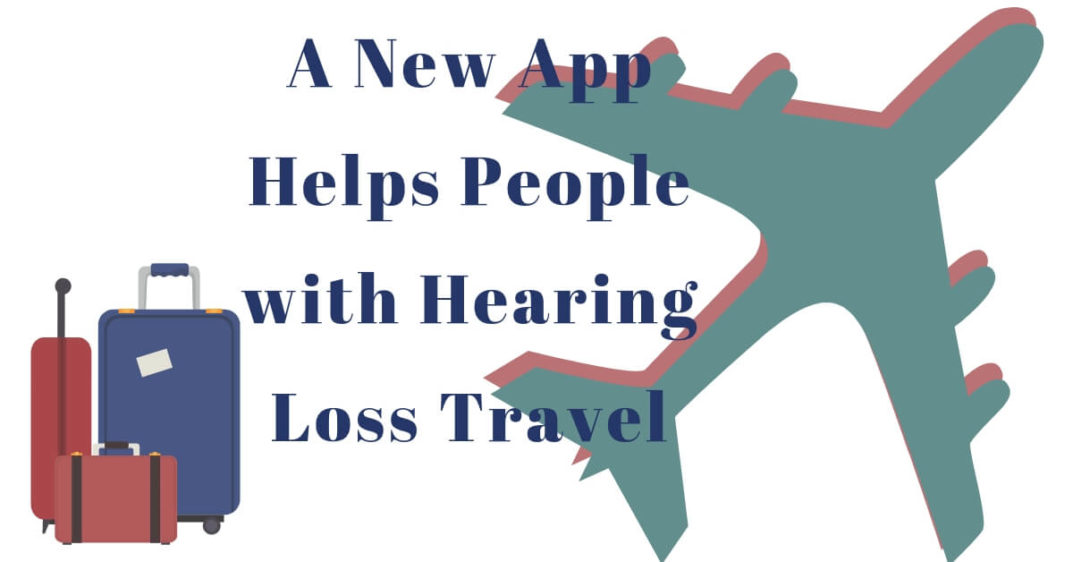If you could go anywhere, where would you go? For many people with hearing loss, where you want to go often doesn’t aligned with where you feel you can go. Managing a disability, especially an invisible issue like hearing loss can make travelling somewhere unfamiliar become a daunting prospect rather than an exciting adventure.
Now, a new app is trying to shift those limitations. “The Rebel Traveler’s Guide to the World” is a new smartphone app that seeks to open up the possibilities of travel to people with disabilities. Designed to crowdsource accessibility information for cities and destination points, “The Rebel Traveler’s Guide to the World” will hopefully grow into an encyclopedia of user-driven knowledge to help people gain comfort and confidence in their travels.
A Clear Need
“The Rebel Traveler’s Guide to the World” was developed by Gabriel Schlieve who is a full-time wheelchair user and world traveler. He started the project out of a clear need for people with disabilities to be able to find accurate accessibility information. Knowing what a destination has available for disabled travelers and even if it can be reasonably accessed by people with mobility concerns is a huge part of making people comfortable with navigating new places.
The potential is present for “The Rebel Traveler’s Guide to the World” to become an important tool for any traveler who lives with a disability. Although Schlieve initially began the project thinking about mapping wheelchair access, the scope of the app soon expanded to include other concerns like visual impairment and hearing loss.
Getting the Ball Rolling
Schlieve’s initial development happened in partnership with a fellowship from Swaziland where some of the app’s first accessibility mapping was done. Now, Schlieve is continuing to develop the program back home in Eau Claire, Wisconsin. Expanding the app bit by bit, the next cities on the radar are Eau Claire, Chicago and the Twin Cities of Minneapolis/St. Paul.
After getting the ball rolling, the hope is that users will begin to add details to maps with advice and tips for the disabled traveler. Relying on users to expand the platform not only makes the app more interactive, it allows perspectives from many different disabilities to become incorporated in the map.
Traveling with Hearing Loss
Hearing loss has been shown to limit the comfort people have with travel and their mobility in general. A limited hearing range makes it difficult to navigate busy travel hubs and itineraries. Often people conclude that traveling with hearing loss may be more trouble than it’s worth.
It’s not, of course. Travel can be a fun and exciting way to experience the world, meet new people and make memories with the people you love. With a little planning, most travel logistics can be made to accommodate hearing loss. With additional resources like “The Rebel Traveler’s Guide to the World” knowing what to expect at your destination becomes easier.
It helps to be organized for travel. Take time to map your destination. Check with the airports or travel centers you are using to see if they have smartphone apps or telecoil loops for travelers with hearing issues. Sign up with your airline or other travel provider to receive text messaging about changes to your itinerary, departure time and gate changes.
Pack everything you need to keep your hearing aids clean and functional. It’s also a good idea to carry detailed paper maps with your travel destinations marked on them as well as a pad of paper and pencil in case you need someone to write a response or draw directions on the go.
Hearing Aids Can Help
Whether you head out to somewhere you’ve never been or just take a trip to visit an old out-of-state friend, hearing loss doesn’t have to limit the way you travel. The first thing on your packing list should be hearing aids. With hearing aids offering more ways to stream sound and selectively focus on speech, managing your hearing with hearing aids can be provide you with better communication and comprehension while traveling.
If you have experienced changes in your hearing, but haven’t yet looked into treatment, now’s the time to set up an appointment with Comprehensive Ear and Hearing. Letting hearing problems linger has been shown to increase anxiety and isolation and limit people’s mobility. Treating hearing loss can help you stay active and engaged with life – where ever it may take you!


